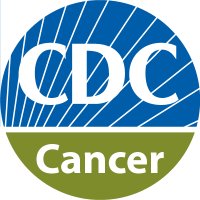
BCMCancerEd
@bcm_cancered
@BCMCancerCenter ensures that underserved people in the Greater Houston Area have the latest information about cancer prevention & treatment.
ID: 765572364775989248
https://linktr.ee/cancer_coeresources 16-08-2016 15:34:10
5,5K Tweet
1,1K Takipçi
4,4K Takip Edilen















Wondering about testing for #prostatecancer? Take 3 minutes to listen to this CDC Cancer podcast: bit.ly/2YIv8IJ #PCSM

Black men are more likely to get #prostatecancer at a younger age. Find a primary care provider who can discuss prostate cancer screening options with you. Early detection is key. Read more from CDC Cancer: bit.ly/3kUmOjn


According to NCI Cancer Stats, about 96% of Black and Hispanic men are alive 5 years after a #prostatecancer diagnosis compared to 97% of White men. Refer to @TheNCI for information on reducing your risk of prostate cancer: bit.ly/3aIHl5N

Learn about screening for #prostatecancer. Review the CDC Cancer’s information on these two tests before talking to your doctor: bit.ly/316clcJ #PCSM




